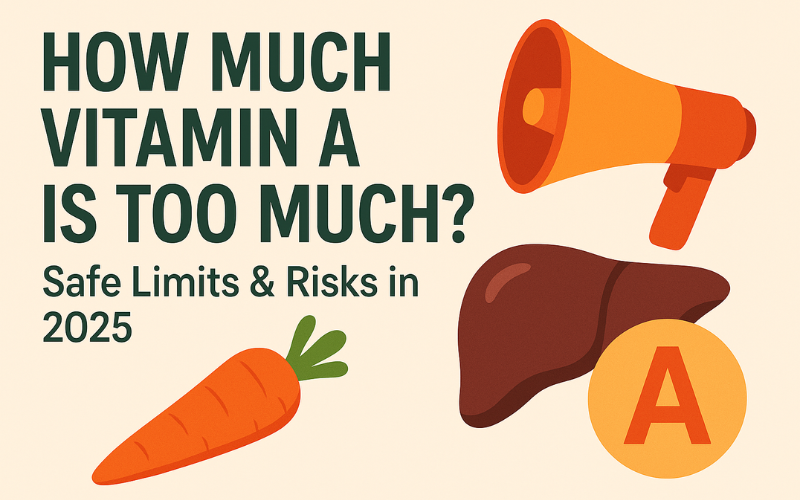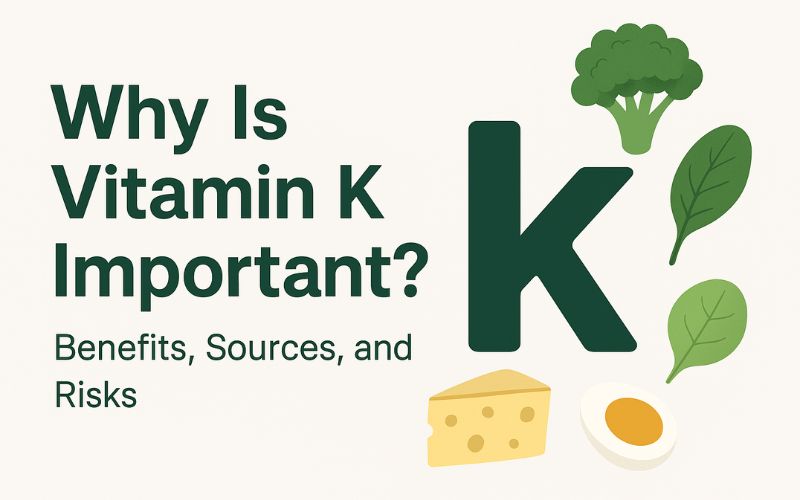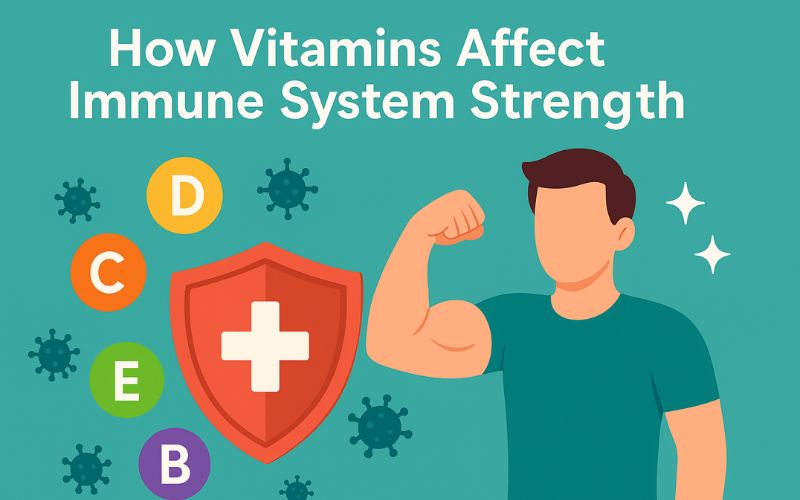Vitamin A is a vital nutrient your body needs for good vision, immune strength, healthy skin, and proper cell growth. But as with many nutrients, too much of a good thing can become harmful. Consuming vitamin A beyond safe limits can lead to a condition called hypervitaminosis A, which can cause serious health problems sometimes irreversible.
This guide will help you understand how much vitamin A is too much, safe daily limits, symptoms of overdose, and how to prevent toxicity.
Table of Contents
What Is Vitamin A and Why Does Your Body Need It?
Vitamin A is a fat-soluble vitamin that exists in two main forms:
- Preformed Vitamin A (Retinol): Found in animal products such as liver, dairy, fish oils, and eggs.
- Provitamin A (Beta-Carotene): Found in plant-based foods like carrots, sweet potatoes, and spinach.
Your body uses vitamin A for:
- Maintaining healthy vision, especially in low light.
- Supporting immune system function.
- Reproductive health and fetal development.
- Cell growth and skin health.
Recommended Daily Intake of Vitamin A
According to NHS and WHO guidelines, the recommended daily intake (RDI) for vitamin A is:
- Men: 700 mcg (micrograms) per day
- Women: 600 mcg per day
- Children: 250–600 mcg per day (depending on age)
Sources of Vitamin A
Animal-based sources (preformed vitamin A):
- Beef liver (extremely high — eat in moderation)
- Dairy products (milk, cheese, butter)
- Egg yolks
- Fish oils (cod liver oil is particularly rich)
Plant-based sources (beta-carotene):
- Carrots
- Sweet potatoes
- Dark leafy greens (spinach, kale)
- Red peppers
- Mangoes
Fortified foods & supplements:
- Breakfast cereals fortified with vitamin A
- Multivitamins
- High-dose retinol supplements
How Much Vitamin A Is Too Much?
The Tolerable Upper Intake Level (UL) for vitamin A is:
- Adults: 3,000 mcg per day (preformed vitamin A)
- Children: 600–900 mcg per day (varies with age)
Exceeding these amounts regularly can lead to vitamin A toxicity.
⚠ Important: The upper limit applies mainly to preformed vitamin A, not beta-carotene from plants, which is less likely to cause harm.
Symptoms of Too Much Vitamin A (Hypervitaminosis A)
Short-term (acute toxicity):
- Nausea and vomiting
- Headache and dizziness
- Blurred vision
- Skin irritation
Long-term (chronic toxicity):
- Liver damage
- Joint and bone pain
- Hair loss
- Fatigue and weakness
- Osteoporosis (due to excess bone breakdown)
Vitamin A Toxicity in Pregnancy — Why It’s Especially Risky
High vitamin A intake during pregnancy can cause birth defects affecting the eyes, lungs, heart, and skull of the developing baby.
- Pregnant women should avoid liver products and high-dose retinol supplements unless prescribed by a doctor.
- Beta-carotene from vegetables is safe during pregnancy.
Vitamin A From Supplements vs. Food — Which Is Safer?
- Supplements: The risk of toxicity is higher, especially with high-dose retinol products.
- Food: Rarely causes toxicity unless consuming extremely high-liver diets.
- Beta-carotene in foods is much safer because your body converts only what it needs.
Who Should Be Cautious About Vitamin A Intake?
- Pregnant women (risk of birth defects)
- People with liver disease (slower vitamin A processing)
- Heavy alcohol users (increased liver stress)
- Those taking retinoid medications (for acne or skin conditions)
How to Monitor Your Vitamin A Intake
- Read supplement labels for vitamin A content in mcg or IU.
- Track your diet if eating large amounts of liver or fortified foods.
- Consult a doctor if you have symptoms of vitamin A overload or are on retinoid medication.
Conclusion — Balancing Benefits and Risks
Vitamin A is essential, but more is not always better. Staying within the recommended daily limit of 700 mcg for men and 600 mcg for women is key to avoiding toxicity.
If you suspect you’re getting too much vitamin A, especially from supplements, speak to a healthcare professional before making changes.
Protect your health with the right nutrition — explore trusted supplements at Nutritional World.
FAQs — How Much Vitamin A Is Too Much?
- Can I get too much vitamin A from carrots?
Not usually. Carrots contain beta-carotene, which your body regulates and converts to vitamin A as needed. Excess may cause orange skin but not toxicity. - Is vitamin A stored in the body?
Yes. Being fat-soluble, it is stored in the liver and fat tissues, making overconsumption more dangerous. - How long does it take to recover from vitamin A toxicity?
It can take weeks to months, depending on severity. Medical treatment may be necessary for severe cases. - Is beta-carotene safer than retinol?
Yes. Beta-carotene is plant-based and converted into vitamin A only as required, reducing toxicity risk. - Does cooking affect vitamin A levels in food?
Cooking can slightly reduce vitamin A in vegetables but may make beta-carotene easier to absorb.


























